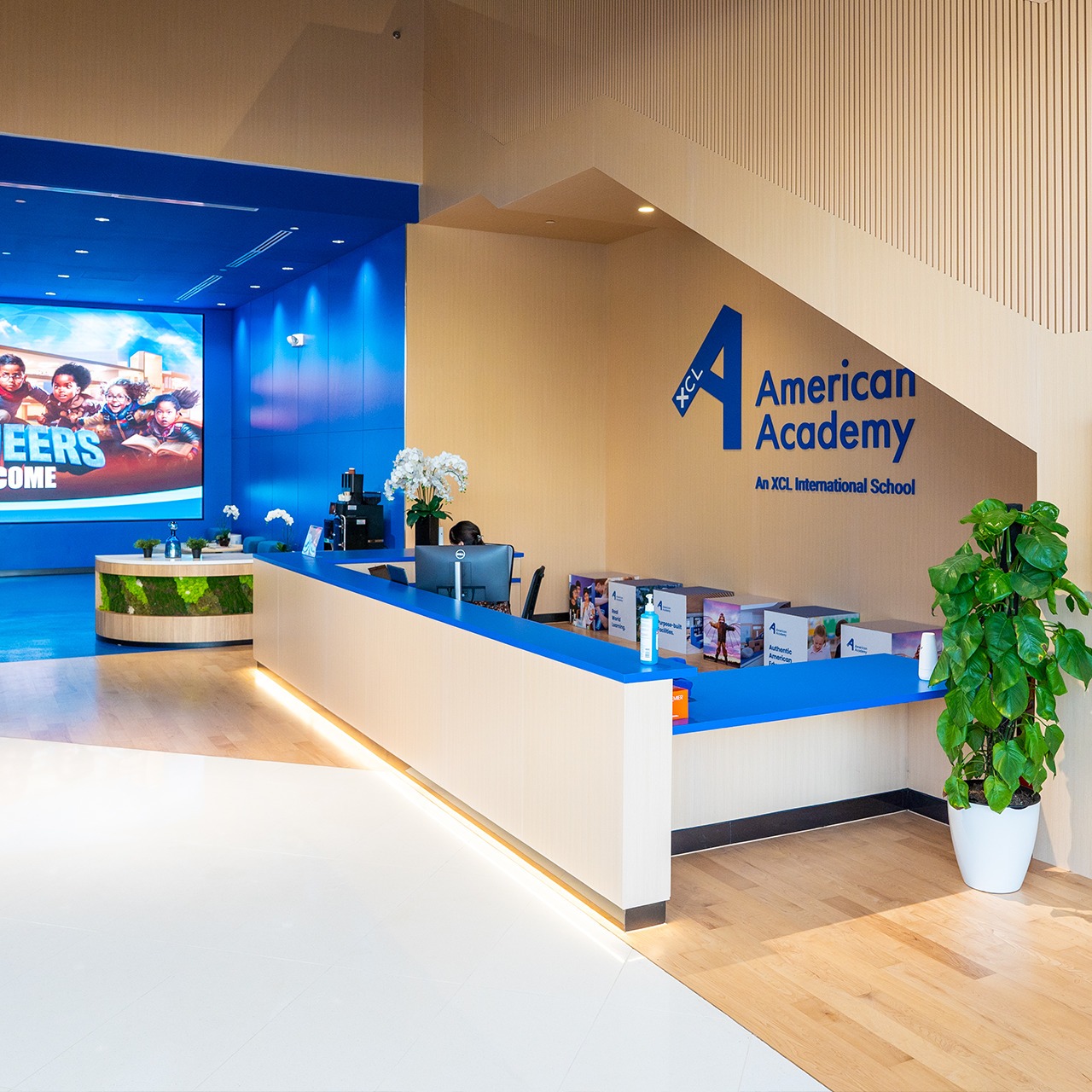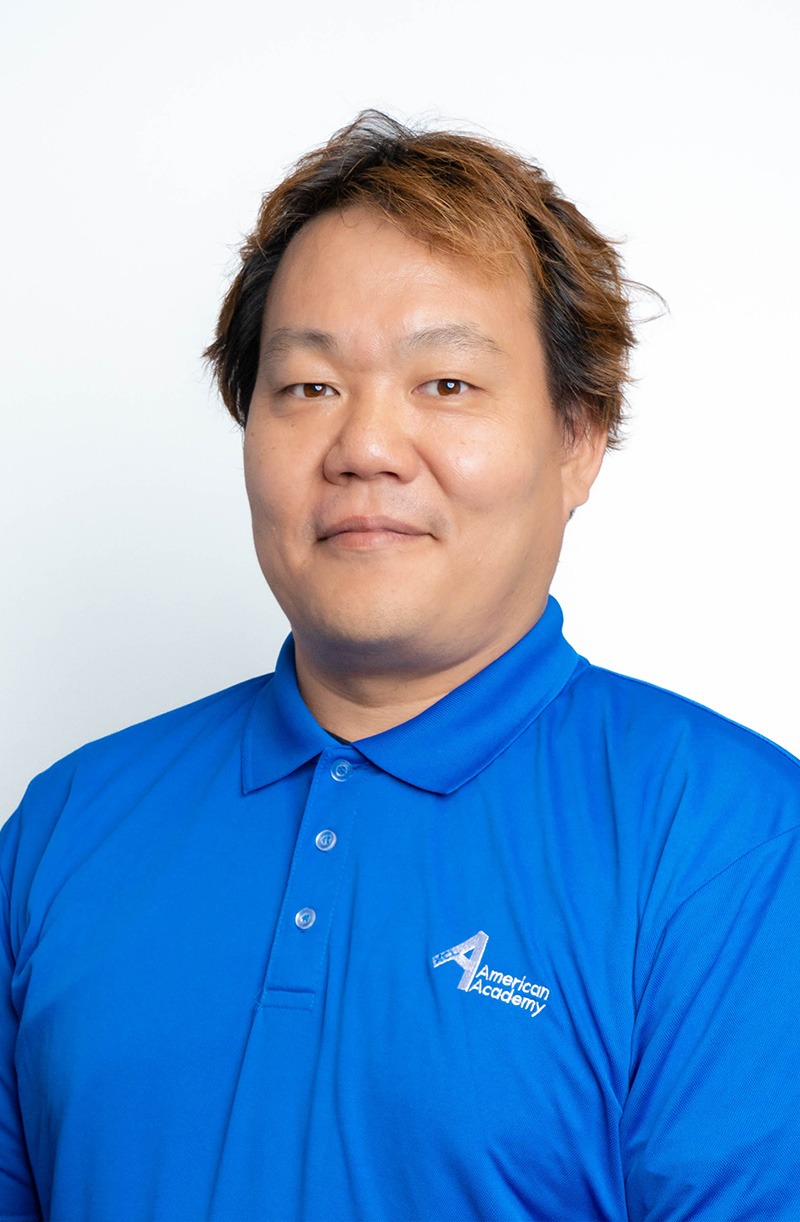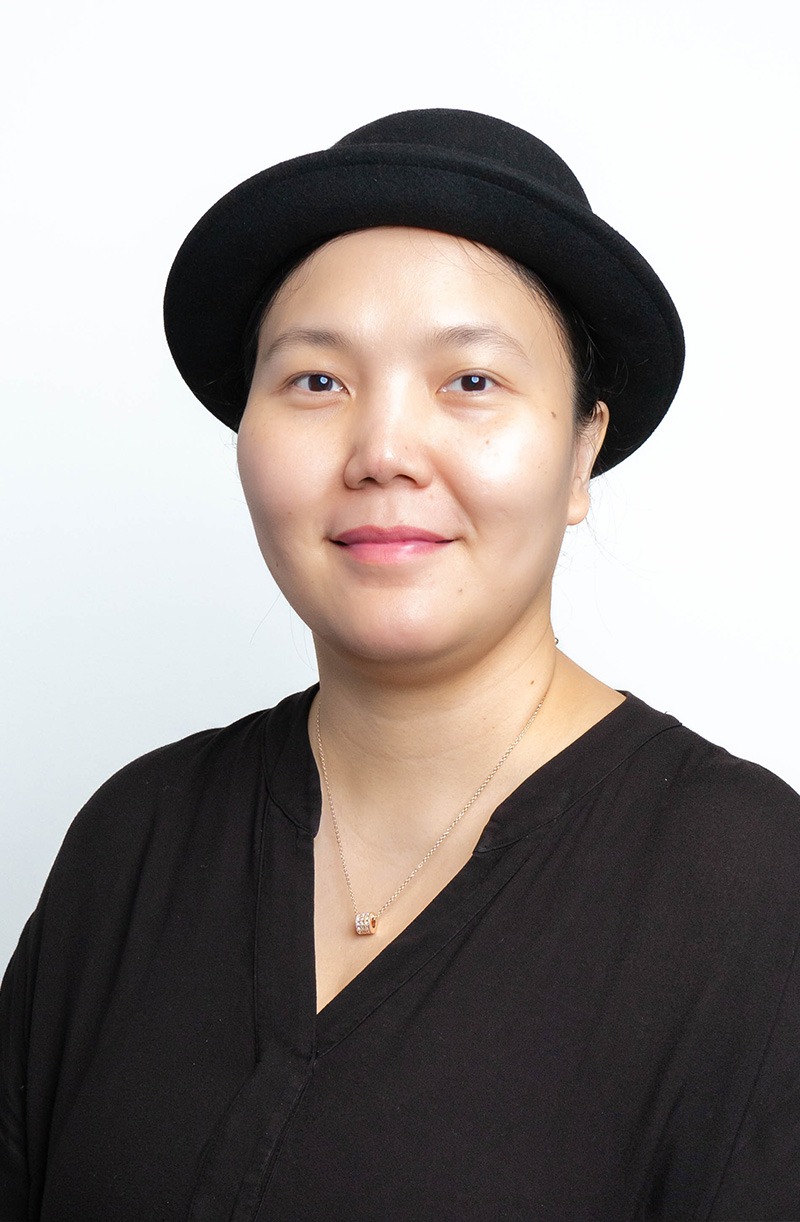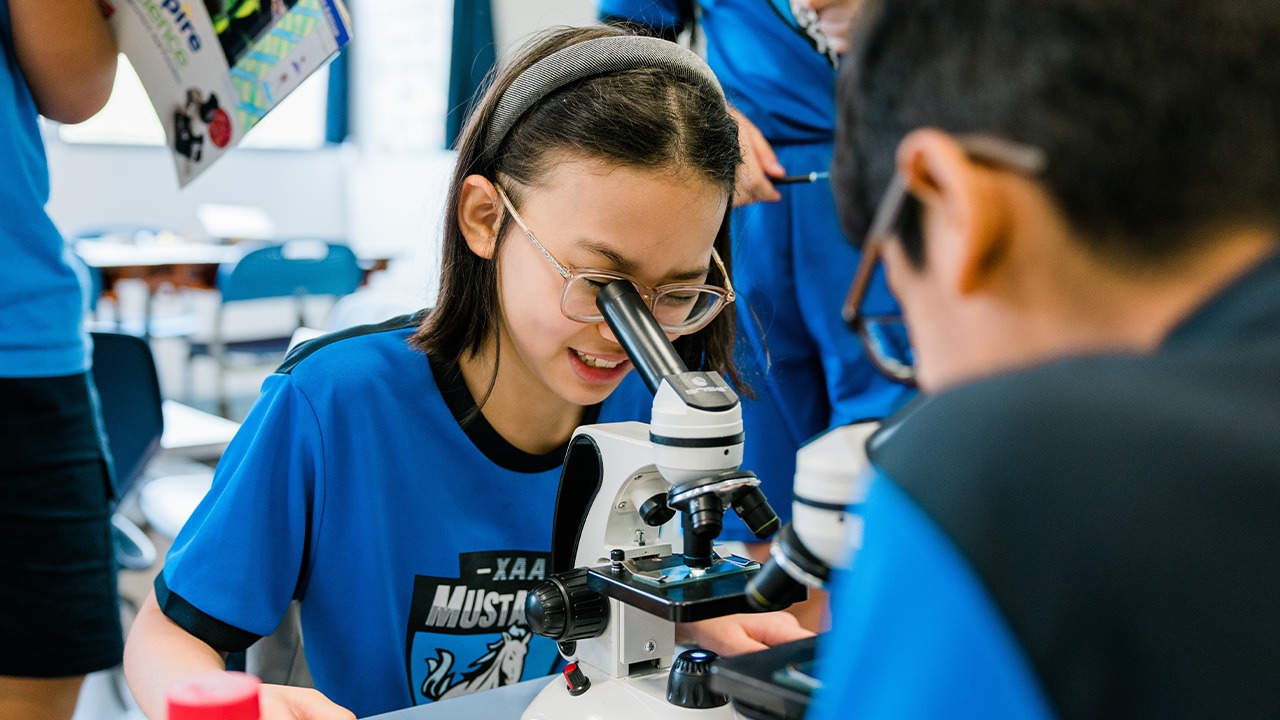
What is Experiential Learning and How Does it Benefit Students?
As technology evolves and the world becomes more connected, it’s more important than ever to teach transferable skills such as leadership, problem-solving, innovation and more to our children.
However, today’s parents and teachers face a big challenge: how can they help children develop these skills when they’re not taught like other subjects at school?
While you may not find a “leadership” section in your child’s textbook, they have plenty of opportunities to learn and put these skills into action — especially when their school has an experiential learning program.
In this article, we’ll explore:
- What is Experiential Learning?
- The Experiential Learning Cycle
- Benefits of Experiential Learning for Students
- PioneerTown at XAA: a unique learning experience for students
What is Experiential Learning?
When we hear the word “learning,” we often think of books, videos, podcasts and other learning materials. While these are essential in a school setting, they’re not the only way for children to learn new skills and knowledge.
Experiential learning allows students to connect with a subject or concept by experiencing it for themselves. This type of learning often involves hands-on activities such as experiments and fieldwork — but it can also take place over longer periods of time (for example, a year-long class project).
In this educational model, students take the lead in their personal learning journeys. This helps develop curiosity, collaboration and self-motivation — all essential traits in the 21st century.
Overall, experiential learning is a powerful tool for teaching important life skills and helping students make a deeper connection with the knowledge they gain in the classroom.
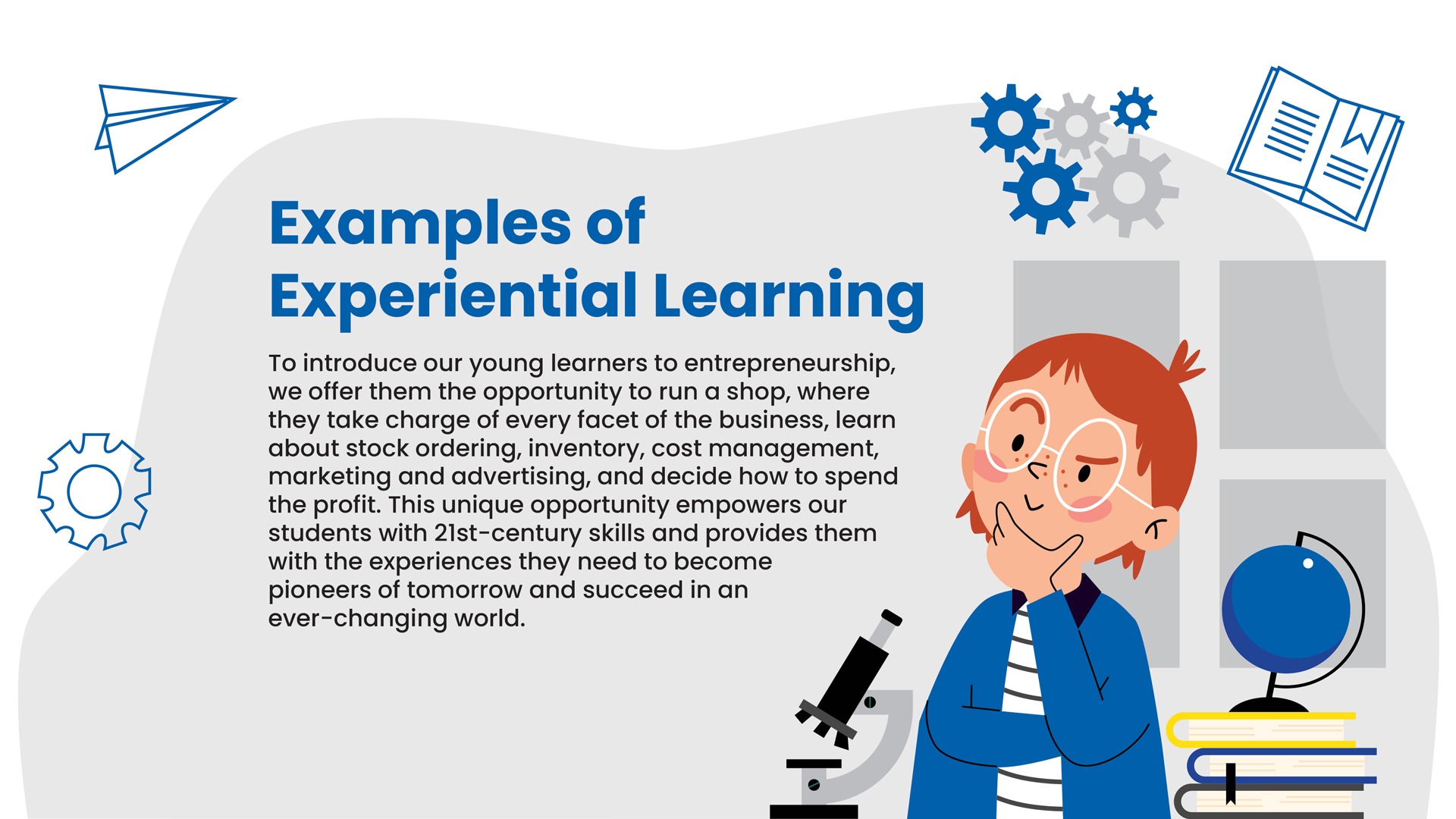
The Experiential Learning Cycle
According to American psychologist David Kolb, experiential learning takes place when we grasp and transform our experiences. His Experiential Learning Cycle includes four stages:
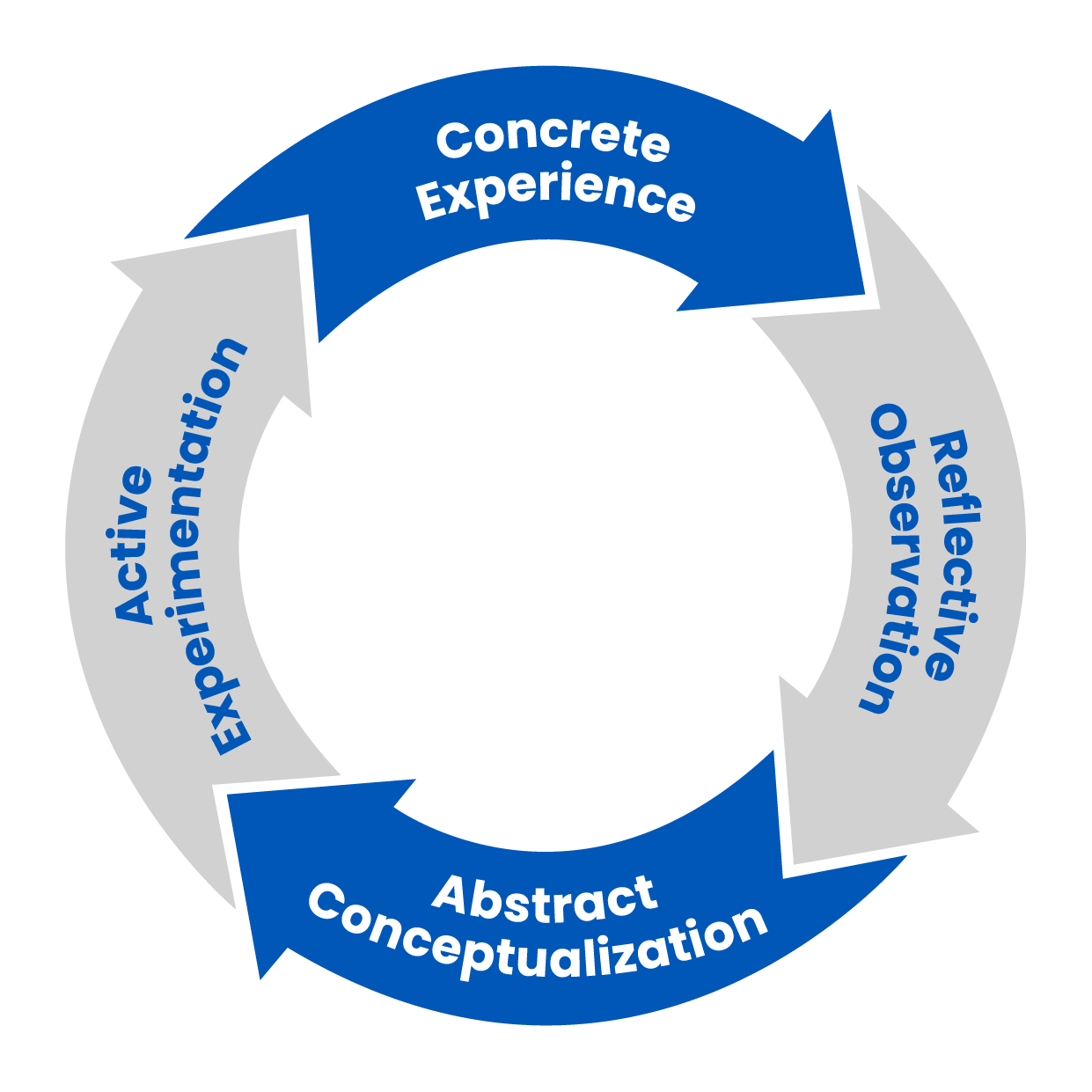
- concrete experience,
- reflective observation,
- abstract conceptualization, and
- active experimentation.
Let’s take a look at what the experiential learning cycle might look like in the school context.
Concrete experience
In this part of the cycle, students are exposed to a new learning experience. This can include activities, projects or even interactions with others.
Let’s say the classroom project is a charity bake sale. Working in groups, students will get to decide on a product, buy ingredients, bake their goods and sell them during a schoolwide event. After the bake sale, they’ll have the concrete experience of running a small business.
Reflective observation
For learning to take place, students must reflect on their experiences.
In the case of our previous example, students will have plenty of information to reflect on — such as the cost of ingredients, the profit they made, which pastries sold the most and so on.
Abstract conceptualization
In this stage, students transform the information from their experience to create a hypothesis or model.
Let’s say that after the bake sale, students found that more doughnuts were sold compared to cupcakes. They theorize that doughnuts are more popular with customers — and therefore, more likely to turn a profit.
Active experimentation
In the experimentation stage, students test the hypothesis or model they created. This process helps develop their research, critical thinking and problem-solving skills.
To continue with our example, students can test their theory by surveying customers or hosting another bake sale. These experiments will help confirm or reshape their ideas while providing opportunities to learn from mistakes. They also serve as concrete experiences, thus starting the experiential learning cycle all over again.
Benefits of Experiential Learning for Students
Experiential learning provides an avenue for students to explore their curiosity, make mistakes and learn from those mistakes in a low-risk environment.
It also helps develop important life skills such as leadership, communication, problem-solving, self-motivation and more on top of the subject material. Students can take what they’ve learned and apply it in other contexts, strengthening the connection between two disciplines or subjects.
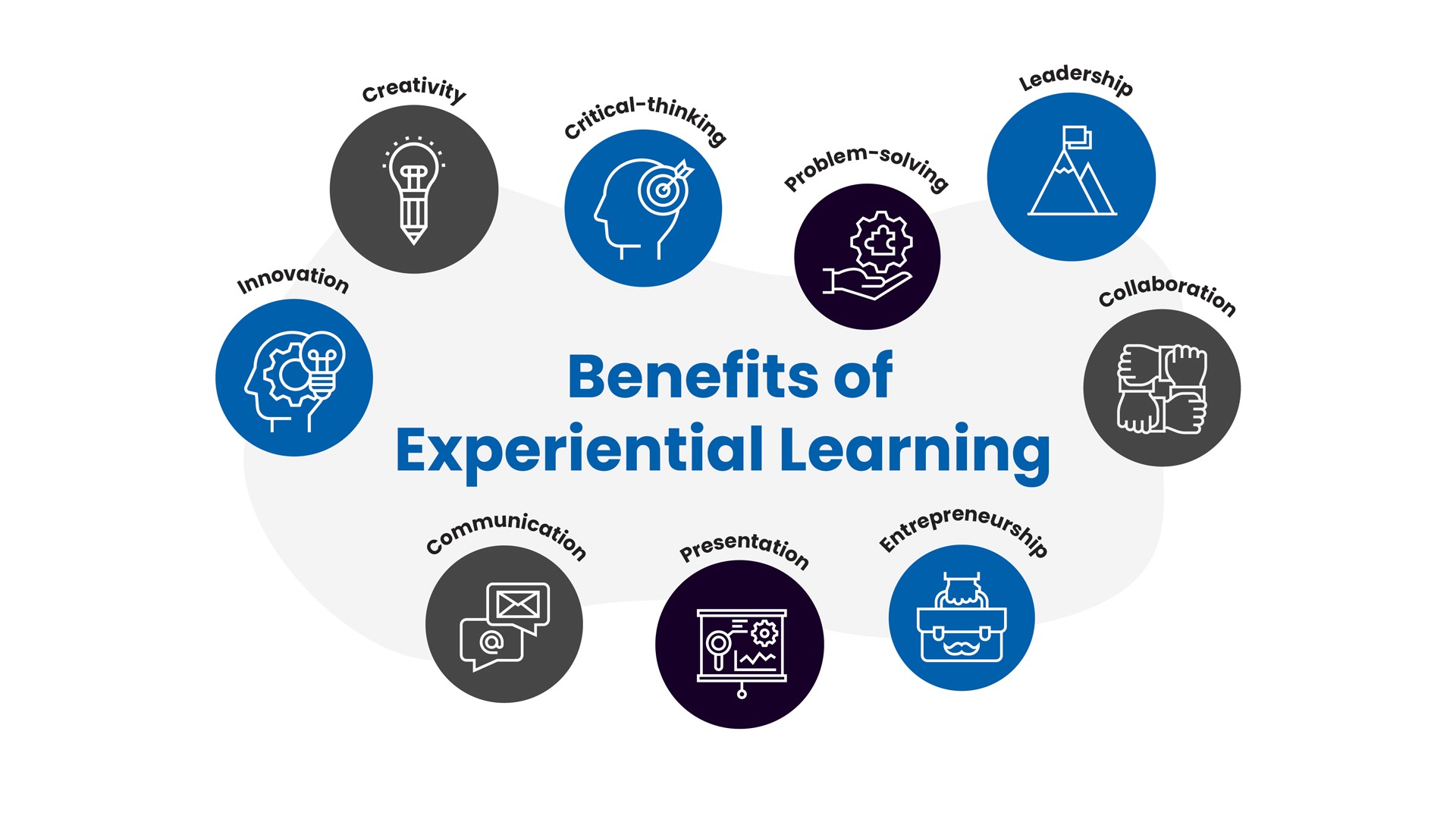
Additionally, research shows that hands-on activities are linked to better retention — thus leading to higher test scores and a deeper understanding of the subject beyond mere facts and figures.
Finally, experiential learning provides opportunities for children to discover what they’re passionate about — helping direct them to fulfilling careers and pathways in the future.
PioneerTown at XAA: a unique learning experience for students
At XCL American Academy, real-world, hands-on learning experiences are integral components of our authentic American curriculum. Beginning from the elementary school level, our students participate in PioneerTown, an exceptional experiential learning program designed to foster students’ understanding of practical subjects such as business, marketing, communication, civics, and leadership.
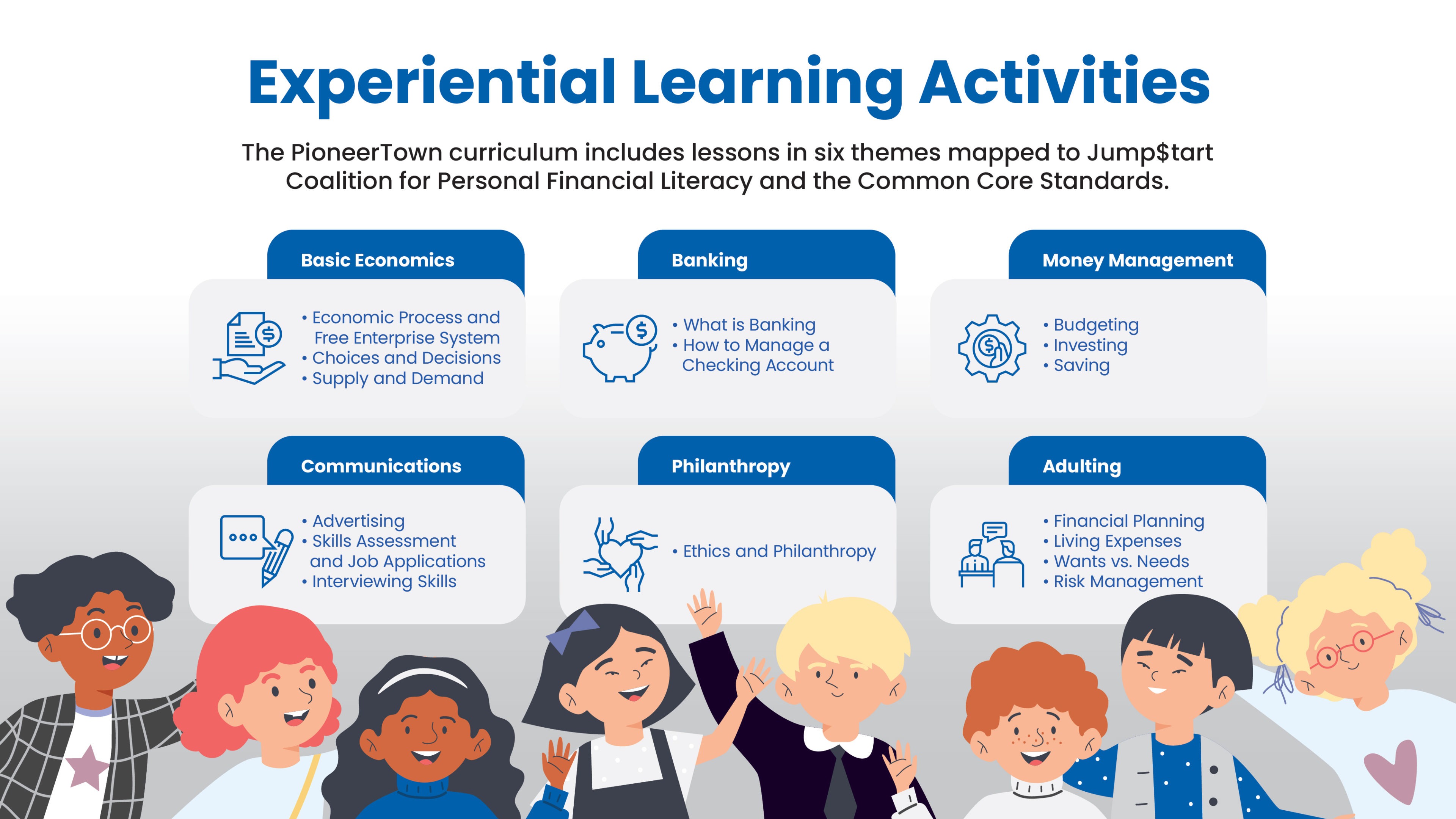
Under the guidance of dedicated educators and industry mentors, our students collaborate in teams on diverse entrepreneurial projects throughout the academic year. This immersive experience equips them with essential skills, including market research, product design, and business development, all vital to initiating and managing a successful enterprise. At the end of the year, students have the opportunity to present their innovative solutions before an expert panel, mirroring the intensity of a real-world pitch session.
In addition to this entrepreneurial class, our students participate in a large-scale town simulation conveniently located within our campus. Within this simulated town, students have the unique opportunity to assume roles and explore various careers. Through the town’s self-contained economy, they gain invaluable insights into managing finances and a profound understanding of what it takes to keep a town running and sustain a community.
These unique educational experiences empower our students with transformative skills, preparing them for the jobs of the future that do not exist yet. We eagerly anticipate witnessing the remarkable achievements that our Young Pioneers will attain through this enriching and experiential approach to learning.
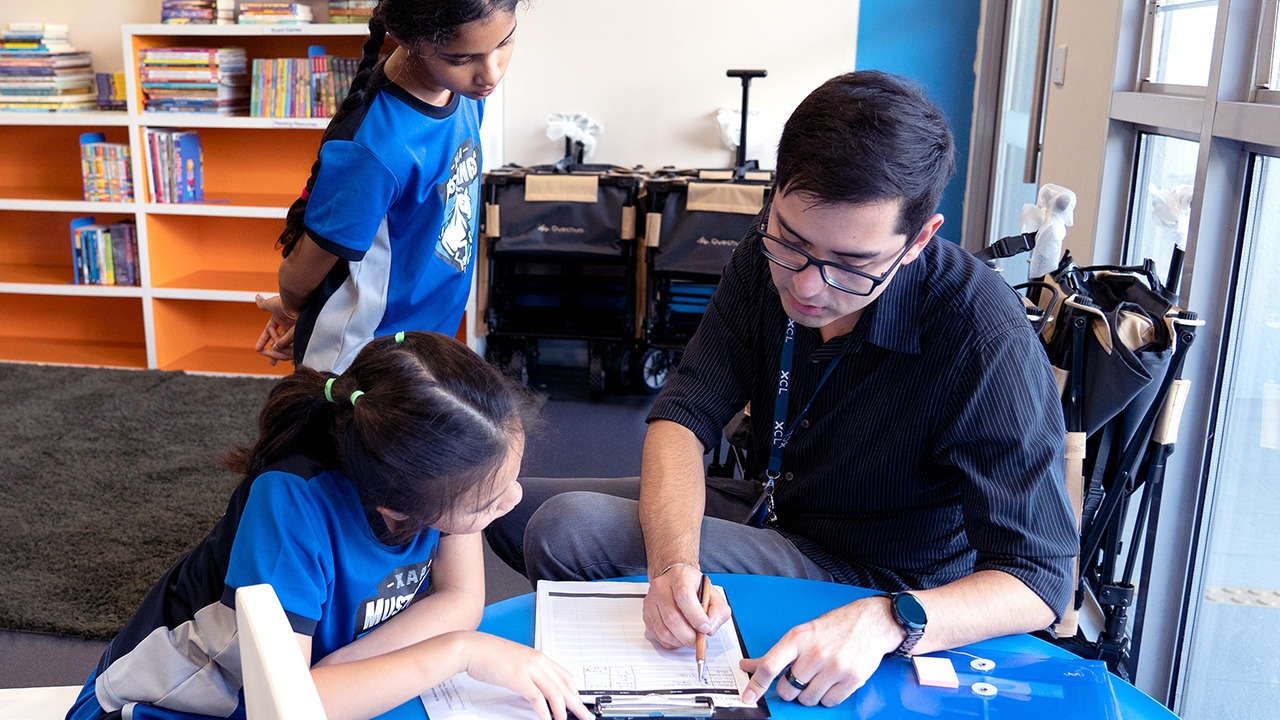
Want to learn more about PioneerTown and how it can open your child to a world of possibilities? Contact us today or book a personalized tour of our world-class facilities.
This website uses cookies to improve user experience. By using our website you consent to all cookies in accordance with our Privacy Policy.
